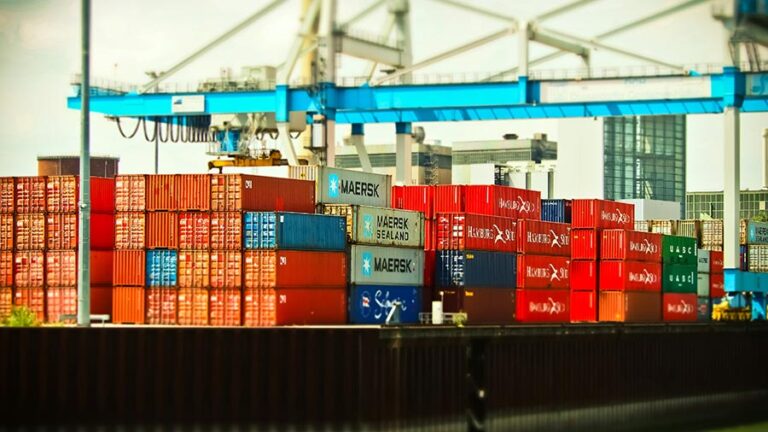New BCG report highlights how changing global trade dynamics, including potential U.S. tariff hikes following President-elect Trump’s inauguration, could impact India’s trade and economic growth I’m doing it. Examine the insights of key reports impacting India’s import and export trade.
Boston Consulting Group (BCG)’s latest report (January 2025) “Great Powers, Geopolitics, and the Future of Trade” finds that changing global trade dynamics, including new U.S. tariffs, will impact India’s trade and economic growth. It highlights the potential impact. The report analyzes the potential impact of a 20% tariff on Indian goods exported to the United States, as well as broader changes to global trade routes.
Impact on key sectors in India
The proposed tariffs could affect several of India’s key export sectors, including textiles, pharmaceuticals and IT services. Tariffs could increase costs for Indian exporters and reduce their competitiveness in the U.S. market. In the consumer goods sector, Indian manufacturers may face higher barriers, increasing the need for a diversified export strategy.
Geopolitical changes in world trade
BCG’s report highlights how geopolitical tensions are reshaping trade alliances. Global trade is projected to grow at 2.9% per year over the next eight years, but changes in major trading blocs could accelerate or slow growth in certain regions, including India. The report outlines two key trends: North America’s decreasing dependence on imports from China and China’s increasing focus on the Global South.
India’s growing role in global trade

India’s trade is poised for significant growth, with BCG forecasting a compound annual growth rate (CAGR) of 6.4% through 2033. Thanks to government incentives such as the Production-Linked Incentive (PLI) scheme and infrastructure development, annual trade volume could reach US$1.8 trillion. , and India’s position as an alternative manufacturing hub to China.
According to BCG, India’s major trading partners are:
United States: Annual trade with the United States is expected to double to US$116 billion by 2033, reflecting stronger economic ties. European Union and ASEAN: Trade between the EU and ASEAN is expected to increase by 80% over the next decade, supported by free trade agreements and deepening partnerships. Africa and Mercosur: Bilateral trade with African and Mercosur countries is expected to nearly double, opening up new opportunities for Indian exporters. Australia and South Korea: Trade volumes could triple due to strategic agreement and increased cooperation in energy and technology.
Despite robust growth forecasts, trade relations between India and China remain strained due to a growing trade deficit, geopolitical concerns, and border disputes.
Impact on Indian companies
Find business support

There are several strategic recommendations for Indian businesses to cope with the evolving global trade landscape.
Build resilient supply chains: Companies need to diversify their sourcing strategies and strengthen relationships with key suppliers. Investments in real-time monitoring systems and “supply chain control towers” will strengthen resilience and enable rapid response to disruptions. Increase geopolitical awareness: Indian businesses need to incorporate geopolitical risk analysis into their strategic plans. By anticipating changes in trade policy and tariffs, companies can proactively adjust their operations and seize new opportunities. Capitalize on growth markets: Secure long-term growth by expanding our presence in high-growth regions such as ASEAN, the Middle East, Africa and Latin America. Local partnerships and investments in these regions can increase competitiveness. Adopt a nearshoring strategy: Nearshoring production to countries with favorable trade agreements, such as the UAE or Vietnam, reduces costs and improves supply chain resilience. Seeking regional differentiation: Combining business strategies tailored to different regions with localized technology solutions provides greater flexibility and ensures success in a fragmented global market.
conclusion
India’s trade growth potential, coupled with its strategic initiatives, plays an important role in the evolving global trade landscape. However, to capitalize on these opportunities, Indian companies need to adopt agile strategies, strengthen supply chains and focus on high-growth markets. By adapting to global changes and building resilience, India can solidify its position as a major trading partner in the coming years.
About us
India Briefing is one of the five regional publications under the Asia Briefing brand. The project is supported by Dezan Sheila & Associates, a pan-Asian multi-disciplinary professional services firm assisting foreign investors across Asia, including offices in Delhi, Mumbai and Bengaluru, India. Readers can write to india@dezshira.com for help with doing business in India. Click here to subscribe to India Briefing’s content products for free.
Dezan Sheila & Associates also maintains offices in China, Hong Kong Special Administrative Region, Dubai (UAE), Indonesia, Singapore, Vietnam, Philippines, Malaysia, Thailand, Bangladesh, Italy, Germany, the United States, Australia and other countries. We have affiliate partners who support our investors. .


